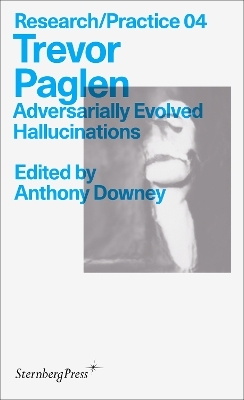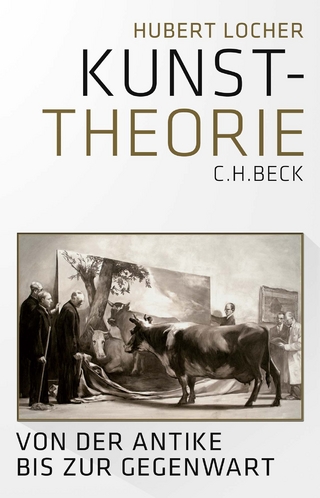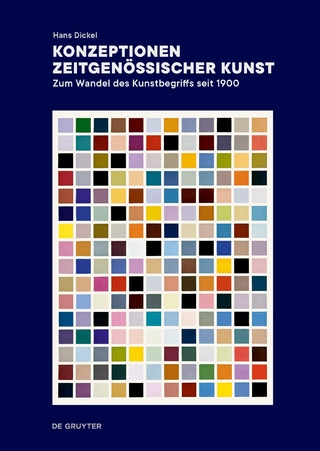
Trevor Paglen
Adversarially Evolved Hallucinations
Seiten
2024
Sternberg Press (Verlag)
978-3-95679-583-1 (ISBN)
Sternberg Press (Verlag)
978-3-95679-583-1 (ISBN)
How machine and computer vision produces contemporary images.
How do machines look at images? To ask such a question is to observe the degree to which images today are increasingly produced by machines for machines. Symbolically, these images are void of an aesthetic context. They are not propagandistic (they do not try to convince us), nor are they instructive (they are not interested in directing our attention). They exist as abstract binary code rather than pictograms and are not, crucially, content-based. Made by machines for machines, they make things happen in our world. However, void of anthropological or aesthetic intention, the functionality of such images anticipates the obsolescence of "perception" as a human-defined activity and, in turn, the ascendancy of "machine vision." We cannot see how they make things happens in our world, in short. All of which leaves us with a question: in the absence of being able to perceive such images, how do we think about their impact on societies more broadly? Taking Trevor Paglen’s series “Adversarially Evolved Hallucinations” as a starting point for an analysis of these and other questions, this volume explores the role of algorithms and Artificial Intelligence (AI) in these processes. More specifically, it examines Paglen’s research methods and the extent to which they encourage the viewer to think from within such apparatuses rather than merely reflect upon them. Can, we will ask, the black-box-like technologies that produce such images be negotiated with or, indeed, modulated by methods of envisioning/engaging with their operative logic? How can we, if at all, hold the post-digital, machine-produced image to account?
How do machines look at images? To ask such a question is to observe the degree to which images today are increasingly produced by machines for machines. Symbolically, these images are void of an aesthetic context. They are not propagandistic (they do not try to convince us), nor are they instructive (they are not interested in directing our attention). They exist as abstract binary code rather than pictograms and are not, crucially, content-based. Made by machines for machines, they make things happen in our world. However, void of anthropological or aesthetic intention, the functionality of such images anticipates the obsolescence of "perception" as a human-defined activity and, in turn, the ascendancy of "machine vision." We cannot see how they make things happens in our world, in short. All of which leaves us with a question: in the absence of being able to perceive such images, how do we think about their impact on societies more broadly? Taking Trevor Paglen’s series “Adversarially Evolved Hallucinations” as a starting point for an analysis of these and other questions, this volume explores the role of algorithms and Artificial Intelligence (AI) in these processes. More specifically, it examines Paglen’s research methods and the extent to which they encourage the viewer to think from within such apparatuses rather than merely reflect upon them. Can, we will ask, the black-box-like technologies that produce such images be negotiated with or, indeed, modulated by methods of envisioning/engaging with their operative logic? How can we, if at all, hold the post-digital, machine-produced image to account?
| Erscheinungsdatum | 03.05.2024 |
|---|---|
| Reihe/Serie | Sternberg Press / Research/Practice ; 4 |
| Zusatzinfo | 57 COLOR ILLUS. |
| Sprache | englisch |
| Maße | 111 x 181 mm |
| Gewicht | 170 g |
| Themenwelt | Kunst / Musik / Theater ► Allgemeines / Lexika |
| Sozialwissenschaften ► Soziologie | |
| ISBN-10 | 3-95679-583-0 / 3956795830 |
| ISBN-13 | 978-3-95679-583-1 / 9783956795831 |
| Zustand | Neuware |
| Informationen gemäß Produktsicherheitsverordnung (GPSR) | |
| Haben Sie eine Frage zum Produkt? |
Mehr entdecken
aus dem Bereich
aus dem Bereich
Zum Wandel des Kunstbegriffs seit 1900
Buch | Hardcover (2024)
De Gruyter (Verlag)
52,00 €
eine Vortragsreihe der Bayerischen Akademie der Schönen Künste
Buch | Hardcover (2024)
Wallstein Verlag
20,00 €


